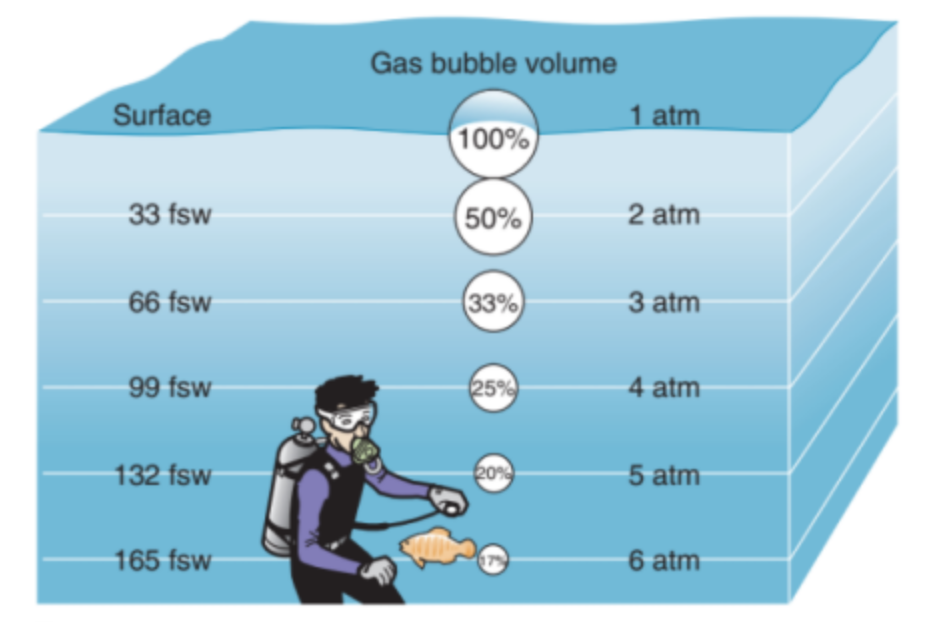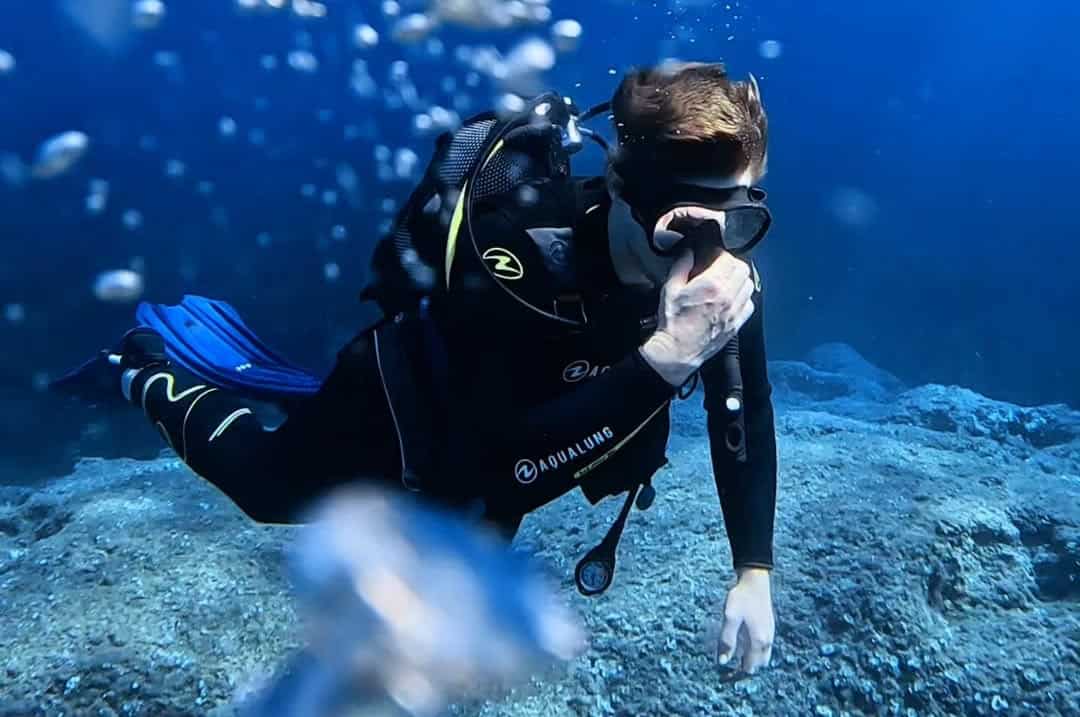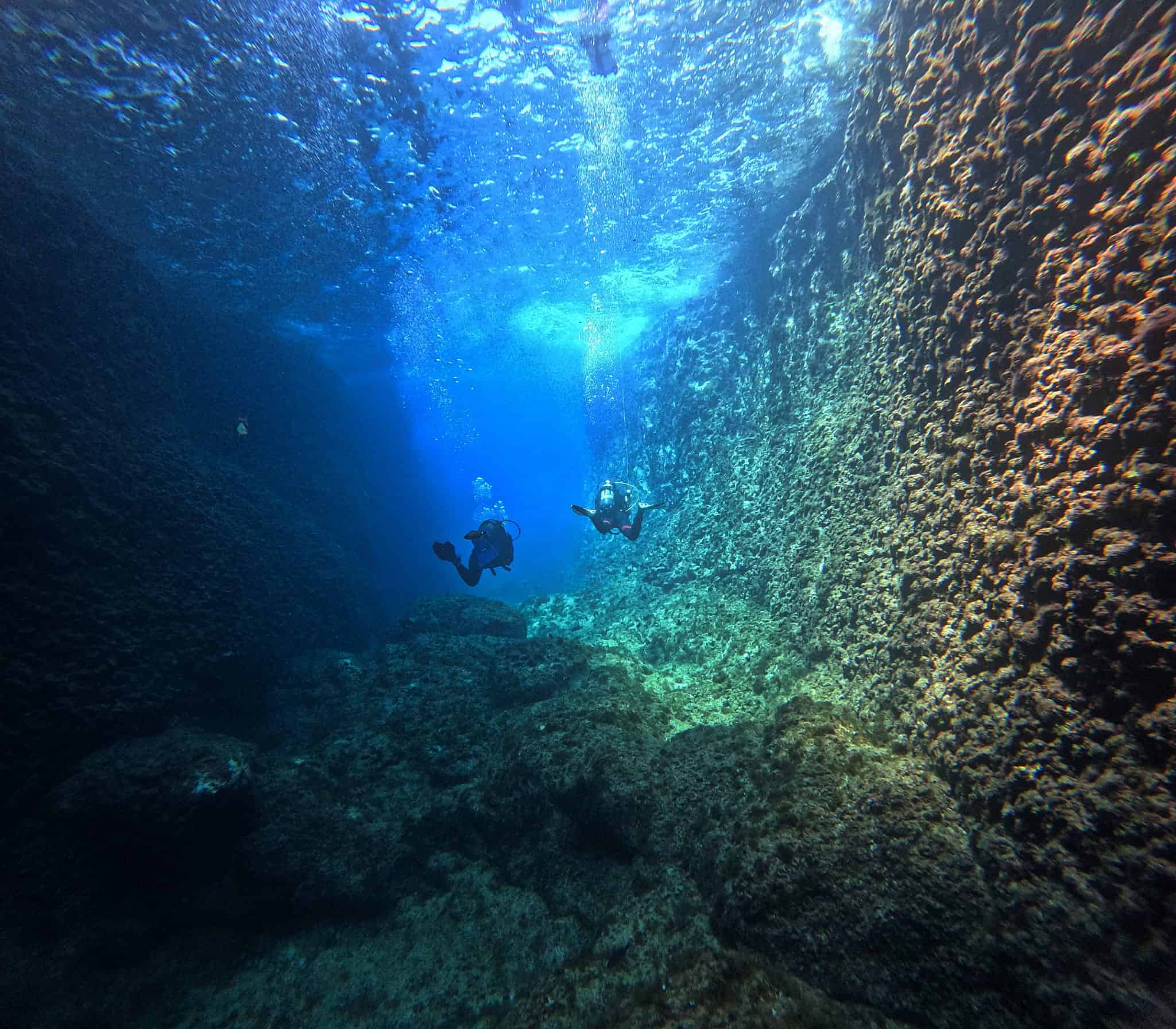Scuba Diving
Understanding Pressure: How Diving Affects the Human Body
Written by Scuba Turtles | 25 June 2025

Scuba diving is more than just exploring the underwater world. It’s also about understanding how our body adapts to changes in pressure. Don’t worry, we’re not here to give you a physics lecture, just a simple explanation of how diving affects the human body. And guess what? With the right training, our bodies handle it beautifully!
In this post, we’ll explore how water pressure affects us, why it matters for safety, and how basic physics, like Boyle’s Law, makes diving both fascinating and fun.
Let’s dive into the science of pressure, and how it helps us become better divers.
1. Pressure Increases with Depth: The Basics
Water is much denser than air. As we descend, the pressure increases quickly, by 1 atmosphere (atm) for every 10 meters. So at 10 meters, you’re experiencing twice the pressure than at the surface. This is completely normal and expected in diving, and it’s why we do things like equalizing our ears and adjusting buoyancy.
Understanding how this affects the body is one of the first things you’ll learn in the PADI Open Water Diver course.
2. Boyle’s Law: The Simple Science Behind Air and Pressure
One of the coolest things about scuba diving is that we actually experience physics in action. A key rule to know is Boyle’s Law, which tells us how pressure and air volume are connected.
Boyle’s Law says: When temperature stays the same, as pressure increases, the volume of gas decreases. And as pressure decreases, volume increases. So, deeper = more pressure = smaller air volume.

For example, if you fill a balloon with air and take it down to 10 meters (2 atm), it will shrink to half its size. Bring it back up, and it expands again. This applies to your lungs, BCD, and even your mask!
That’s why we:
Always breathe slowly and never hold our breath when ascending, because expanding air needs to escape naturally.
Add or release air from our BCD to stay neutrally buoyant.
Equalize our mask as we descend to prevent it from squeezing.
It might sound technical, but it’s easy to manage, and your instructor will guide you through every step. It’s actually quite fun to learn how your body works with the physics!
3. Equalizing Pressure: Taking Care of Your Ears
As pressure increases, it affects the air spaces in your body, especially your ears. That’s why divers equalize by pinching their nose and gently blowing. This helps match the pressure inside your ears with the water pressure outside. It’s a small habit that makes a big difference for comfort and safety underwater.
You’ll learn to equalize early and often during your descent. Once you get used to it, it becomes second nature!

4. Buoyancy and Breathing: Your Underwater Balance
Boyle’s Law also affects your buoyancy. As you go deeper, the air in your BCD compresses and you become less buoyant. So, you may need to add a bit of air to stay balanced. On the way up, the air expands, so you release some. Mastering this gives you the feeling of effortlessly floating underwater.
Breathing also changes slightly at depth—air feels denser and you may notice you’re using it a bit faster. But don’t worry! With relaxed, deep breaths and proper training, you’ll stay comfortable and in control.
5. Slow Ascents and Safety Stops: Giving Your Body Time
One of diving’s most important safety rules is ascending slowly. As we go up, the pressure decreases and the air in our body and gear expands—again, thanks to Boyle’s Law. That’s why slow ascents and a 3-minute safety stop at 5 meters are part of every dive plan.
This gives your body time to safely release excess nitrogen and helps you avoid decompression sickness (which sounds scarier than it really is—it’s very rare when you follow your training and dive computer).

6. Your Body Is Smarter Than You Think
With proper training, your body adapts beautifully to changes in pressure. Your ears, lungs, and air spaces all work in harmony, especially when you stay relaxed and follow the simple techniques you’ll learn during your certification course.
Divers who understand the basics of pressure and gas laws become safer, more confident, and more aware underwater. It’s a great example of how science and adventure go hand in hand!
Trust the Process and Enjoy the Dive
Now that you know how diving affects the human body… You know that diving is a perfect mix of exploration, self-awareness, and science. Understanding pressure, especially how it affects air spaces in our body, makes diving even more fascinating. And with training, it all becomes second nature.
So next time you go scuba diving, remember! you’re not just diving into water, you’re diving into physics and the magic of the ocean.